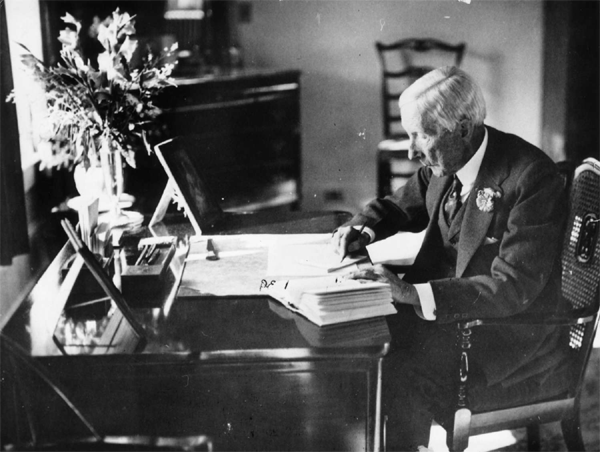Imagine this. A man sits quietly in a meeting room. He speaks very little, and those around him wonder what he is thinking. That man is John D. Rockefeller. Known as one of the most successful businessmen of all time, he was famous for spending his time in seclusion and being sparing with his words.

Wisdom in Silence
An oil refinery employee once said, “He lets everyone else do the talking while he just sits there silently. But it seemed like he remembered everything.” As this statement indicates, [Rockefeller was quiet but thought deeply and made precise decisions at critical moments.]
Rockefeller’s main job wasn’t drilling oil wells or loading crude oil onto trains. His real job was making the right decisions. And making decisions required time to think quietly about the problem. During this process, he spent most of his time and energy in his mind.
Comparison with Modern Society
Today’s jobs are different from Rockefeller’s era. Currently, 38% of jobs are classified as “managers, officials, professionals,” who are decision-makers. Another 41% are service jobs that rely on thinking as much as action.
However, [we are still trapped in the outdated notion that good employees should be visible and work without interruption.] This prevents modern knowledge workers from getting the time they need to truly productive work.
Creativity and Productivity
[Good ideas rarely come from meetings or desks.] They often come during showers, walks, commutes, or weekend activities. [A Stanford study found that walking boosts creativity by 60%.]
Bill Gates also spent his “Think Weeks” in this creative manner. He spent seven days alone in a seaside cabin, pondering the future of technology and then bringing those ideas to Microsoft.
Conclusion: The Positive Value of Laziness
Do we really need to work more than 40 hours a week? Even if we don’t work exactly 40 hours a week, we should spend truly creative and productive time. [Productive work can sometimes appear lazy but can actually create greater value.] Now, try taking some quiet thinking time like Rockefeller. You may find the secret to greater success within it.
Reference: Morgan Housel, “Lazy Work, Good Work”
